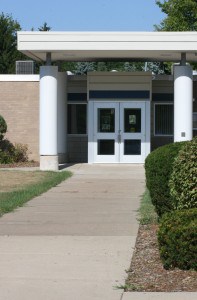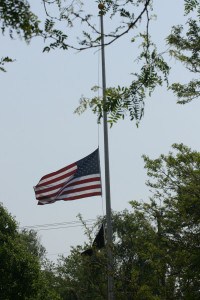Patients who received spinal steroid injections at Chelsea Community Hospital, any Saint Joseph Mercy Health System (SJMHS) hospital, or one of their associated pain clinics are not at risk for this type of meningitis, according to a press release issued by the hospital Monday afternoon, because no SJMHS facility receives methylprednisolone acetate from NECC.
Here’s the full release:
The Centers for Disease Control and Prevention (CDC) and the Food and Drug Administration are coordinating a multi-state investigation of a rare form of fungal meningitis tied to a contaminated supply of epidural steroid injections, specifically methylprednisolone acetate from New England Compounding Center (NECC) based in Framingham, Mass., according to the press release.
SJMHS hospitals are Chelsea Community Hospital, St. Joseph Mercy Ann Arbor, St. Joseph Mercy Livingston, St. Joseph Mercy Oakland, St. Joseph Mercy Port Huron, and St. Mary Mercy Livonia and associated health centers in Brighton, Canton and Saline.
“The CDC has approved the supplies carried at SJMHS facilities as safe to continue to administer to patients,” the hospital’s information states.
“Steroid injections given at Chelsea Community Hospital are prepared here, and are done one patient at a time, not as a batch,” said Matthew H. Johnson, PharmD, director of pharmacy at CCH, in the release. “The methylprednisolone injection we use is a sterile product and played no role in the source of the infections. We do not use medications made by NECC.”
CCH temporarily suspended methylprednisolone injections as a precaution on Friday, Oct. 5, until additional information was known. Once it was confirmed that its drug supply was safe, CCH resumed these pain injections on Monday, Oct. 8.
“We completely understand why patients and families are very concerned about this outbreak,” said Lawrence Handelsman, MD, vice president for medical affairs at CCH, adding, “I can confidently tell you that none of our patients who have received or will receive epidurals or other spinal injections at our hospitals or at one of our hospitals’ Pain Clinics are at any risk of being part of this outbreak.”
As of Oct. 5, physicians at St. Joseph Mercy Ann Arbor have treated six confirmed cases that meet CDC’s definition of fungal meningitis in patients who had also received epidural spinal steroid injections from one of the following four non-SJMHS clinics identified by the MDCH:
- Michigan Neurosurgical Institute in Grand Blanc
- Michigan Pain Specialists in Brighton
- Neuromuscular & Rehabilitation in Traverse City
- Southeast Michigan Surgical Hospital in Warren.
The identified clinics are notifying patients who may be at risk.
The Infection Prevention & Control Services team and medical staff leadership began tracking meningitis symptoms among several patients, and have been working closely with the MDCH to facilitate early identification and treatment for other suspected cases. SJMHS hospitals and health centers are taking the following actions:
- Proactively working with the medical staff, Infection Prevention and Control, the Michigan Department of Community Health and physician practices in identifying and treating patients who are at risk
- Following the CDC’s recommendation to sequester all other products supplied by NECC.
- Communicating with our health care providers and the community the clinical profile for patients who may have this fungal meningitis
- Proactively treating patients who may have this fungal meningitis
- Strongly encouraging people to seek medical care immediately if they think they are at risk.
Meningitis is an inflammation of the lining of the brain and spinal cord. Symptoms include a severe headache, nausea, dizziness and fever. Fungal meningitis is not contagious like the more common forms, bacterial and viral meningitis.
SJMHS strongly encourages people who show symptoms – and have received a spinal steroid injection procedure from these practices since July 1, 2012 – to seek medical care immediately, as early treatment can prevent serious complications. For questions about this issue, patients are advised to contact their physician’s office.





















Thanks for this info having had two injections in recent weeks it was nice to know.